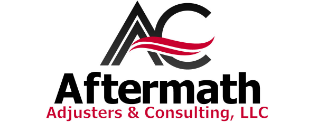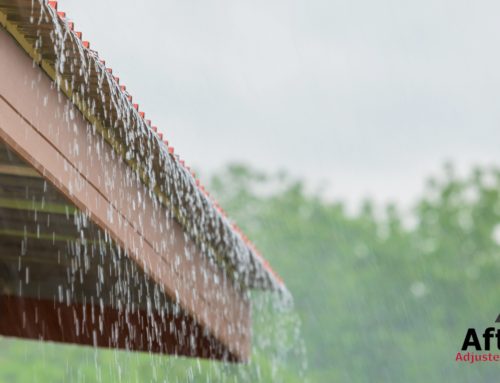For most people, their home is their biggest investment. That’s why having the right insurance is so important. For Florida homeowners, the right insurance should include hurricane insurance. Why? Because most homeowners insurance policies won’t cover everything a hurricane can do to your home. Therefore having the right hurricane insurance in Florida is crucial.
Aftermath Adjusters & Consulting has worked with hundreds of homeowners suffering from hurricane damage. We’ve seen first-hand that the best outcomes for these homeowners happen when they have the right insurance. Here’s a bit more about hurricane insurance in Florida to help you decide if it is right for you.
What is Hurricane Insurance?
Technically speaking, there isn’t a “hurricane insurance policy.” Instead, there are different kinds of policies that insure your home against hurricane damage. The two main ones are flood insurance and windstorm insurance.
- Flood insurance: Covers your home against floods, including a storm surge. Your homeowner’s policy will not have this protection. You can get this policy through the National Flood Insurance Program. There are also private companies selling this type of coverage.
- Windstorm insurance: Many homeowners insurance policies in Florida do not cover windstorm damage because Florida is a high-risk state. If your policy excludes windstorms – and hurricanes are windstorms – you will need this extra policy. These policies are available through private companies, and insurance pools run by the state, or as a rider on your current policy. Keep in mind that this policy covers all strong wind events.
3 Types of Hurricane Deductibles
Your deductible is the amount you pay toward an insurance claim before your insurance kicks in. In Florida, there is a separate deductible for hurricanes, named storms, and/or windstorms.
Let’s look at each of these:
- Windstorm Deductible (also known as wind/hail deductible): Apply specifically to wind damage from hurricanes, tropical storms, tornadoes, straight-line winds, and other strong wind events.
- Named Storm Deductible: The National Weather Service or the National Hurricane Center names storms. If a named storm damages your home, this deductible is used. Any non-named storm, such as a tornado, would not fall into this category.
- Hurricane Deductible: This deductible applies only to a storm categorized as a hurricane. It does not include named tropical storms or depressions.
Calculating Hurricane Deductibles
Although most deductibles are straightforward amounts, such as $500 or $1,000, wind-related deductibles are different. In Florida, you must be given the option of $500, 2%, 5%, and 10%, though some higher-risk areas can go above 10%. Thankfully, Florida has a “single-season hurricane deductible.” This means that once you have met your deductible, you don’t have to pay it again that season, no matter how many storms damage your home. For each additional storm, you will only have to pay your flat-fee homeowner’s insurance deductible.
Let’s look at an example. You have insurance on your home equaling $450,000. Your wind deductible is 5%. Hurricane A causes damage to your home. Your deductible for this event is $22,500. The damage to your home equals $40,000, so the insurance company pays this amount minus your deductible, cutting a check for $17,500. Hurricane B comes along two months later and damages your home again, this time causing $26,000 in damage. Because you’ve already met your deductible for the hurricane season, you only have to pay the $1,000 flat fee in deductibles instead of another $22,500. Your insurance company cuts you a check for $25,000.
It’s important to understand your deductibles before you have a claim. This will help you get the right insurance and have enough money in emergency savings to cover losses.
Buying Coverage
Flood and wind insurance costs vary. It depends on where you live, how much coverage you need, and the deductibles you choose. Here are some things to keep in mind.
- Purchase enough coverage to pay for the cost of rebuilding your home – not just the resale value of your home
- Be sure that the personal property insurance included in your homeowner’s policy is enough to replace your possessions
- Choose deductibles that make sense for you. Typically, higher deductibles lower the cost of the insurance. However, you will need to have money saved for your out-of-pocket expenses should your home sustain wind and flood damage.
- Review your insurance yearly to be sure you have enough coverage. At this time, compare quotes with other insurance companies. You may be able to find a lower rate for equal coverage.
Don’t wait! Procrastination can be expensive! At Aftermath Adjusters & Consulting, we’ve had to let homeowners know that their flood insurance was not in effect at the time of the damage because of the 30-day waiting period between purchase and coverage! Waiting until hurricane season starts to purchase your insurance can be an expensive game of chance. For more information on hurricane insurance or to get help with a hurricane claim, give us a call. We are here to help.









